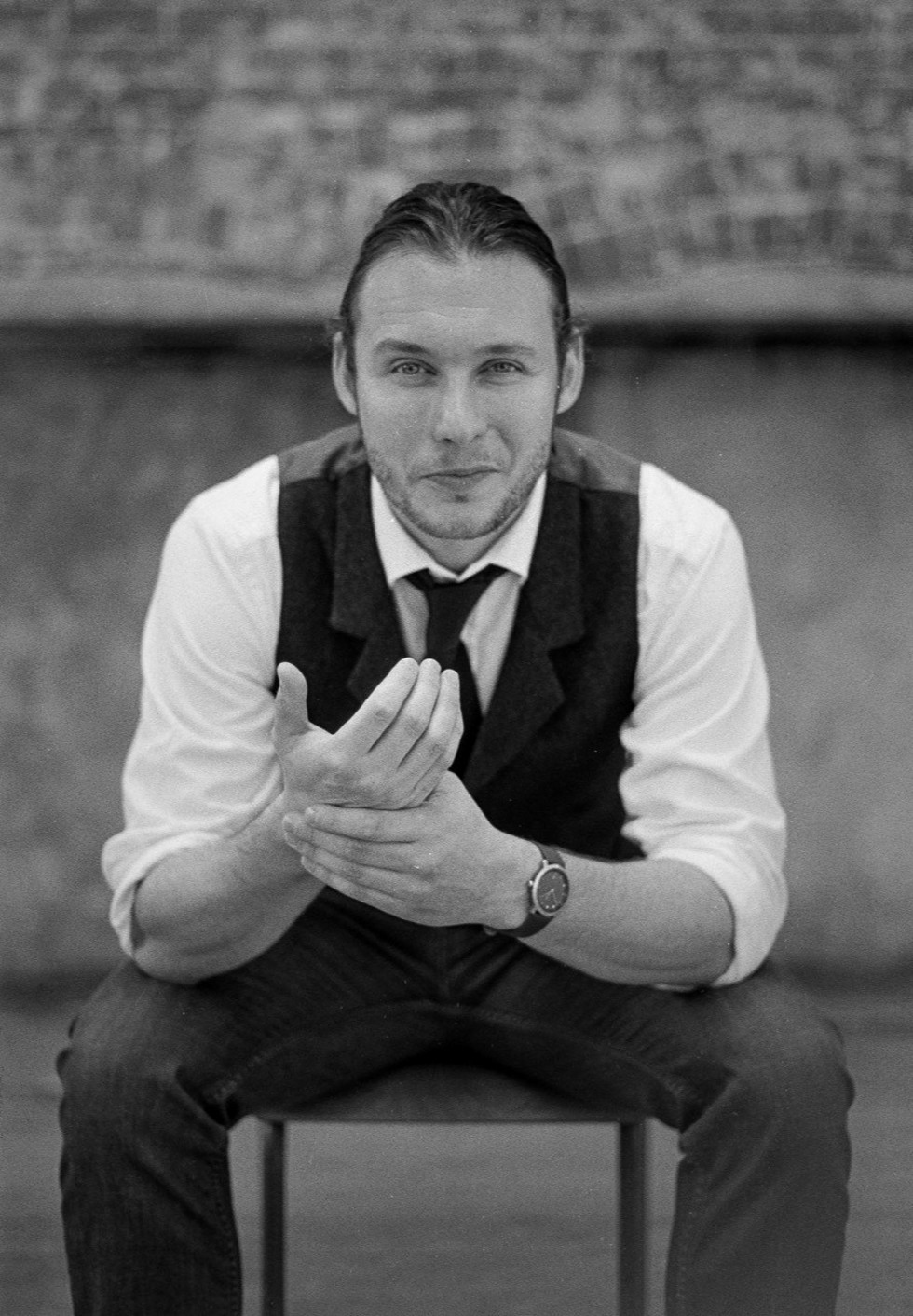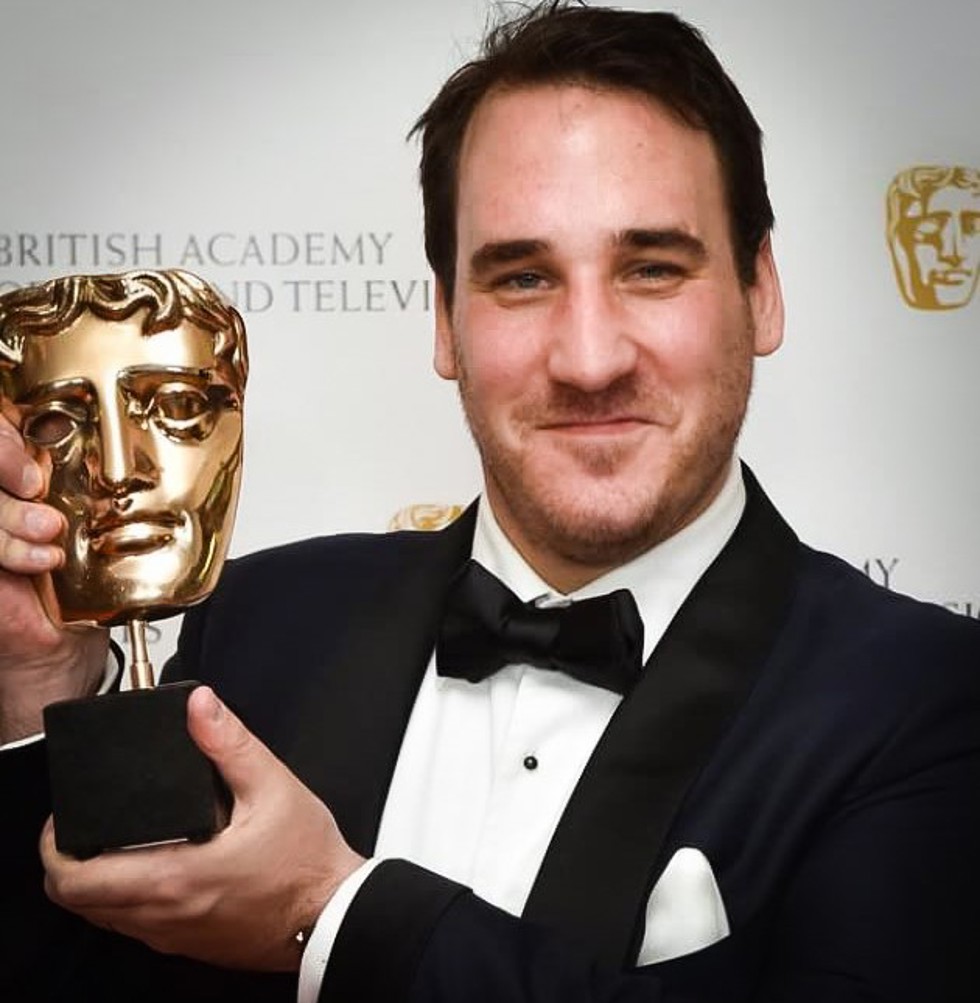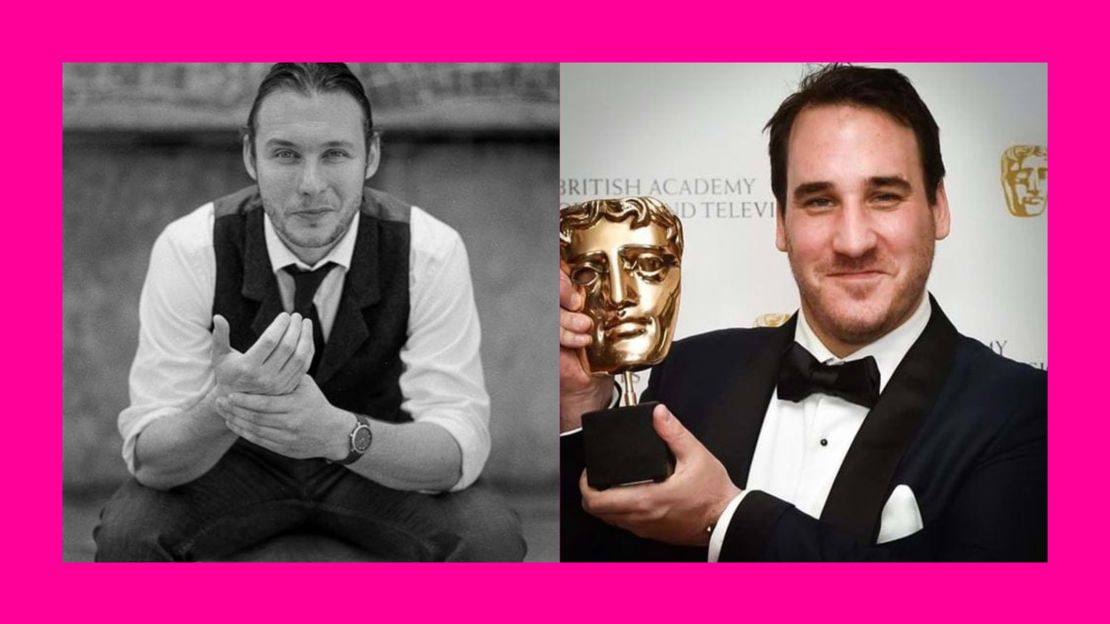James Stier

James Stier was a former RAF photographer and independent documentary filmmaker and had worked on feature projects such as the Race Across America and Last Fisherman.
His ambition was always to work in narrative; to tell ambitious stories at the highest level of production, working with people who inspired him. But he felt he was moving further away from this dream, so, a few years ago, he started working on short films.
"Life always made more sense though a lens, but I realised there were huge gaps in my skillset and knowledge if I wanted to transition from docs. The only way to be a camera operator on dramas and features was to re-learn operating from the ground up," he says.
In other words, be a trainee and work through second and first, to gain experience in becoming a good operator, before even considering working as a cinematographer.
He turned to ScreenSkills for help and applied for the mentoring scheme.
Being slightly older, with experience in related but different areas, he thought some professional guidance was extremely important in navigating this career path. This move led him to his mentor James Friend.
He explained what he wanted to get out of the sessions and his mentor James was able to offer some practical tips and advice about a route into the camera department and beyond. He offered advice on some important skills to develop and useful courses to take.
“I learned more in that meeting about the paths I could take than I had trying to figure things out on my own for the past year. James is an incredibly cinematographer, but also a really cool guy,” James says about his mentor. “He was very complimentary about my experience as a combat photographer, assuring me that it would prove useful, as the skills I learned would translate well to the drama world.”
Perhaps most importantly, they agreed that some of the most useful support that could be offered was through a hands-on approach. So a couple of weeks after their first meeting, James shadowed his mentor grading the Netflix show Cursed.
“Instead of just having a quick look, I was with him for an entire day. I also got to see him work with the renowned colourist Greg Fisher (1917, Spider-Man: Homecoming). To be able to ask them both questions about lighting, blocking and lens choices etc in a relaxed but professional environment was incredible,” he says.
“I also got to chat with underwater cinematographer Mike Valentine, and other members of James’s team. To pick their brains about how they made their way into the industry was very inspiring - I remember leaving London that day fired up and more motivated than ever.”
The pair have kept in touch during the coronavirus lockdown. James has benefited from several useful recommendations his mentor made, including encouraging to join the British Society of Cinematographers Club where he was able to attend some brilliant events. The online content from the BSC, Society of Camera Operators (SOC) and Association of Camera Operators (ACO) has been a great resource during lockdown.
James now has a low budget feature on the horizon and his own short film where his mentor is advising on some of his lighting plans. “I’m booked on to a 16/35mm familiarisation course with the NFTS and reached out to some local crew who are already working in HETV and features to broaden my network. Lots of things to keep me going until we all get back to work. I can't wait.”
James Friend

“I can categorically say that I would not be at this stage of my career without the support of others,” James Friend says.
His first mentor was the hugely respected cinematographer, author and educator Paul Wheeler BSC (Inspector Morse, Pride and Prejudice), who he worked with in many positions on his crew.
James even shot some additional photography for him when Paul was unavailable.
“Being given that responsibility was a very proud moment - one of the ultimate compliments a mentor can give a mentee, effectively saying I trust you with this production.
"Paul went out of his way to teach me all the different facets of the craft and was very generous with information. He was also my proposer into the British Society of Cinematographers (BSC), which was a proud moment.”
Paul later passed the mentor mantle to his friend Phil Méheux BSC (Casino Royale, Golden Eye, The Long Good Friday), another respected feature film cinematographer, who imparted further words of wisdom and insight on the craft.
“I’m now working on a book with Phil about the history of the BSC, with a biography of each member focusing on how they got started. As well as preserving the history of the society, its other purpose is to guide the next generation of cinematographers and demonstrate how its possible to get into the camera department.”
Both Phil and Paul were and still are hugely influential in James’ career and he wanted to do the same for someone else.
When he read about the ScreenSkills mentoring programme, he thought it sounded ideal. He had learned more in the first week of working on a film set with his mentor than he did over years at film school. A lot can be said for hands-on experience.
With ScreenSkills, he was matched with James Stier, who had an interesting array of camera work experience himself in the documentary, commercial and military worlds, but who wanted to move into camera work in the TV and film narrative world.
“He was clearly very bright, enthusiastic and already had a great skillset as a documentary cameraman and as a combat photographer, which is actually quite unheard of these days,” James says of his mentee.
“I wanted to give James as much practical, hands-on experience as I could. We had an initial lunch chat to get to know each other’s experiences and later I invited him to attend a grade on a Netflix series.”
He wanted him to experience what a real grading session was like and how you can augment the image. Since the crew happened to be around the corner in Soho, preparing for a film, his mentee got to meet them too. James hopes to be able to invite his mentee onto his next project.
As a cinematographer, you’re head of department, so responsible for a lot of men and women on set. “I’m only as good as the crew around me and It is important James sees how we work as a family and team, especially as he’s been mostly working as an individual documentary cameraman. Also, he can learn just as much from my gaffer, grip, focus puller or operator as he can from me,” he adds.
